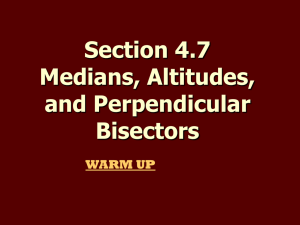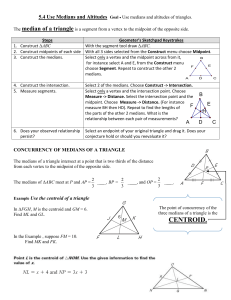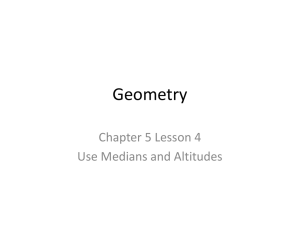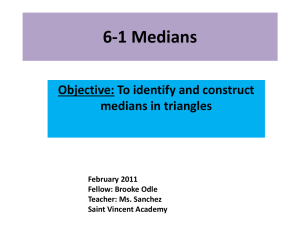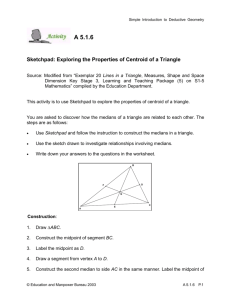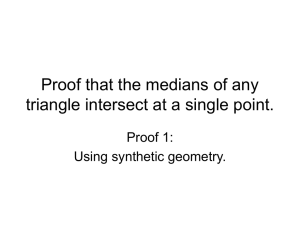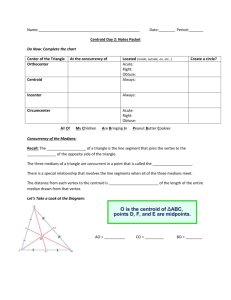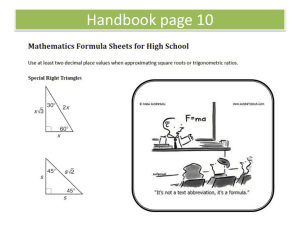Medians and Altitudes of Triangles: Geometry Concepts
advertisement
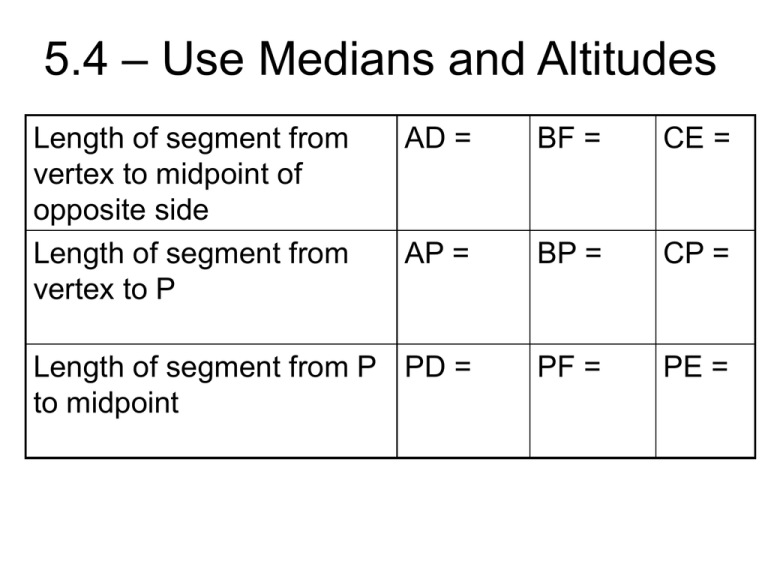
5.4 – Use Medians and Altitudes Length of segment from vertex to midpoint of opposite side Length of segment from vertex to P AD = BF = CE = AP = BP = CP = Length of segment from P PD = to midpoint PF = PE = 5.4 – Use Medians and Altitudes As shown by the activity, a triangle will balance at a particular point. This point is the intersection of the medians of the triangle. 5.4 – Use Medians and Altitudes A median of a triangle is a segment from a vertex to the midpoint of the opposite side. The three medians of a triangle are concurrent. The point of concurrency, called the centroid, is inside the triangle. 5.4 – Use Medians and Altitudes 5.4 – Use Medians and Altitudes Example 1: Use the centroid of a triangle In Triangle RST, Q is the centroid and SQ = 8. Find QW and SW. 5.4 – Use Medians and Altitudes Example 2: Use the centroid of a triangle In Triangle HJK, P is the centroid and JP = 12. Find PT and JT. 5.4 – Use Medians and Altitudes Example 3: Use the centroid of a triangle The vertices of Triangle FGH are F(2, 5), G(4, 9), and H(6, 1). Which ordered pair gives the coordinates of the centroid P of Triangle FGH? 5.4 – Use Medians and Altitudes An altitude of a triangle is the perpendicular segment from a vertex to the opposite side or to the line that contains the opposite side. 5.4 – Use Medians and Altitudes 5.4 – Use Medians and Altitudes The point at which the lines containing the three altitudes of a triangle intersect is called the orthocenter of the triangle. 5.4 – Use Medians and Altitudes The orthocenter is located in different areas depending on what type of triangle you have. 5.4 – Use Medians and Altitudes Isosceles Triangle In an isosceles triangle, the perpendicular bisector, angle bisector, and altitude from the vertex angle to the base are all the same segment. In an equilateral triangle, this is true for the special segment from any vertex.
